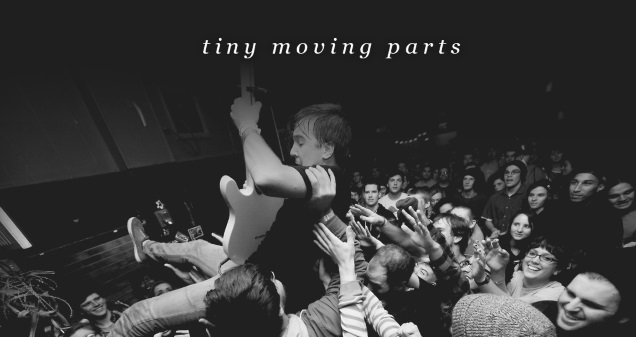New MAMIFFER video by Daniel Menche for “Caelestis Partus” off of “Statu Nascendi”, coming out in November on SIGE Records and Daymare Recordings, has been premiered online. Watch and tell us what you think.
The process of experiencing a musical composition is like decoding a puzzle. The mind registers the emotional implications within a melody, the timbre of the instrumentation, the tempo of the music, and the subject matter of lyrics. Listeners then must decipher this relatively complex code and project their own meanings and feelings to that particular pattern of sound. As a culture, we’ve also come to ascribe connotations to formulas and clichés. These are reference points, a context, and a shorthand method of leading the listener to a certain conclusion. Mamiffer exists with little in the way of context. The musical project, spearheaded by pianist Faith Coloccia, speaks in a new language whose roots are harder to trace. Consequently, the music is intriguingly foreign. A patient listener shouldn’t have any difficulties rendering the deep, vibrant human pulse in the compositions, though a Rosetta stone in the form of the project’s history and operational tactics will undoubtedly help untangle Mamiffer’s cryptic dialect.
Faith Coloccia’s early work as co-founder of the avant-guerilla sound experimentalists Everlovely Lightningheart was an exercise in re-examining traditional concepts of performance. Shows took place in sewers, art galleries, desert landscapes, and, on rare occasions, scattered about the corners and floor space of rock clubs. The shows were hypnotic, transcendent, and occasionally violent. Recycled scraps were turned into instruments; instruments were turned into groaning organisms. After the disbanding of Everlovely Lightningheart, Faith began composing new material on piano. Navigating the creative process as a solo artist, she moved away from her more improvisational past and took a structured approach to her new compositions. The result was Hirror Enniffer, her debut under the moniker Mamiffer. Recruiting an assortment of musicians from the Seattle area, including drummer Chris Common, bassist Brian Cook, cellist/vocalist Annie Hozoji Matheson-Margullis, guitarists Aaron Turner and Ryan Frederiksen, Faith took her fractured neo-classical compositions and infused them with ambient electrical hums and a reductionist metal dirge.
Two years later, after splitting her time between the perpetual gray of the Pacific Northwest and the sun-baked deserts of Southern California, Coloccia began the process of drafting up her second full-length, Mare Decendrii. With co-conspirator Aaron Turner and ongoing collaborator Travis Rommereim on board, Coloccia no longer works under the insular role of a solo artist. Consequently, the material on the follow-up was subjected to heavy scrutiny, with the songs going through a myriad of metamorphoses over the course of an extended drafting and recording process. For the album, Mamiffer enlisted esoteric mastermind Randall Dunn as engineer and recruited a bevy of musicians—including Brian Cook, Don McGreevy, Eyvind Kang, Timba Harris, Moriah Neils, Aaron Harris, Joe Preston, Sera Timms, Jussi Lehtisalo, Mika Ratto, Jessika Kenney, and Parvaneh Daneshvar–to lend their services. The undertaking was ambitious, and with so many participants, it threatened to overwhelm the core elements of the material. But the band is quick to note that “a revolving cast of participants allows it to be a freely evolving entity, something not bound to any one specific formation; the creative freedom inherent in this approach is crucial for Mamiffer to remain alive and relevant in the present moment.” The compositions are malleable and organic, taking on a multiple forms. A song takes a fixed and permanent shape on record, and assumes a completely different incarnation in the live setting.
Over the course of Mare Dencendrii’s five songs, Mamiffer travels between moments of minimalist tone worship, choral meditations, syncopated funeral marches, elaborate odd-time classical passages, and deconstructed doom metal. At its core, it’s a melancholic and occasionally vengeful exploration of texture and melody. It’s a sonic journey, a dynamic, living, breathing experience, a labor of love, and a bold new language.
“Maybe I’m getting more and more bitter and twisted with age because these days it’s extremely rare for me to hear a contemporary record that sustains my interest throughout and warrants repeated listens. When I do have a chance to really listen to something I usually grab the older classics. However, as jaded as I may be the new Mamiffer album has given me renewed faith, (pardon the pun), in the current state of ‘rock’. Why? Simply because this is a jaw-dropping, out-of-nowhere creation where the listener has been given permission to enter a hermetic, personal soundworld that has been painstakingly created with meticulous attention to detail – all built up from Faith Coloccia’s highly individual piano compositions with stunning production from Randall Dunn and string arrangements courtesy of Eyvind Kang. There is something obsessively beautiful about this work that really appeals to me and will undoubtedly appeal to many other people who are willing to really listen.”
Oren Ambarchi, December 2010
Faith Coloccia has evolved this formerly solo / personal project into a grand piece of experimental growth. And a beautiful flower emerges: Mamiffer’s imminent album “Mare Decendrii” was recorded and co-produced by the one and only Randall Dunn in 2010. The architecture of this album struck me as being ambitious, brave and quite delicate… it’s a courageous piece. The album also has an amazing caste of some of the west coasts finest minds of experimental music: Eyvind Kang, Jessika Kenney, Timba Harris, Don McGreavy… and last but not least Aaron Turner.
Stephen O’Malley, January 2011













